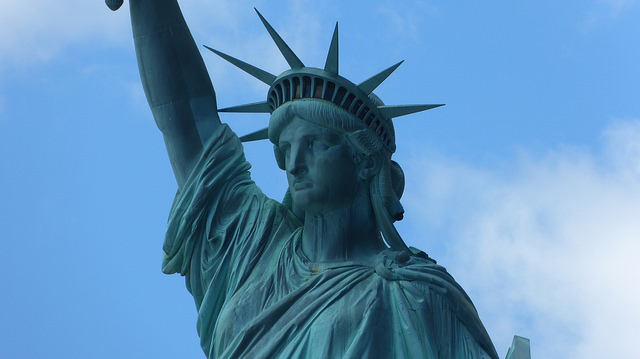Norway outscores the US as a country with a great quality of life. Refer here and here for rankings for the past two years. Perhaps that’s one reason President Trump wants Norwegians to immigrate here.
Perhaps many Norwegians ask, “Why?” After all, they rank higher than we Americans do on the quality of life scale. I should add that the US outranks Norway as to the best country list, but the US is still outflanked by such nations as Sweden, Japan, Germany, the United Kingdom, Canada, and Switzerland, and in that order, with Sweden ranking as sixth and Switzerland ranking as first. So perhaps, President Trump should highlight those countries as his top targets for his envisioned version of immigration reform.
Whether the President made his alleged remarks about preferring Norwegians to Haitians because of race or because of class and other factors, or a combination of all of them, his purported statements miss out completely on what America is. As Republican Senator Lindsey Graham retorted, as reported in The New York Times, “‘America is an idea, not a race,’ Mr. Graham said, according to three people familiar with the exchange on Thursday. Diversity was a strength, he said, not a weakness. And by the way, the senator added, he himself was a descendant of immigrants who came to the United States from” undesirable countries “‘with no skills.’”
The President has since denied he is a racist, and denied that he made the infamous remarks about Norway and Haiti. In fact, when asked by reporters, he went so far as to claim that he is the least racist person they have ever interviewed. Whether he denies it or not, what seems unmistakably in President Trump’s America is the kind of America he wants. To make America great again as he envisions it requires hubris, not humility, quantity of skills over quality of heart, and assets rather than need.
It also requires amnesia of those who would resonate with the ostensible claim demeaning Haiti. The West has contributed over the centuries to the debilitating state of Haiti. And so, as a result, if it is so undesirable, what could and should the U.S. do in partnership with the Haitian people to improve dramatically its infrastructure and quality of life?
Speaking of amnesia, we need to recount our own stories and histories, as Senator Graham reportedly did: his ancestors who immigrated here had no skills and came from countries deemed beneath our standards. Not only do we need to recount our own histories as Americans—an immigrant country made up of people like Senator Graham’s ancestors, but also we need to recount America’s involvement with nations whose people migrate here as documented and undocumented alike. They are not strangers to us, even though we may have forgotten the connections. Our relationship with these nations precedes their arrival here in so many cases. To this point, Loyola University professor of theological ethics Tisha M. Rajendra, author of Migrants and Citizens: Justice and Responsibility in the Ethics of Immigration, said in an interview at this column:
The dominant narrative of migration is that immigrants come “here”—or to wealthy liberal democracies seeking “a better life.” While this is true in some ways, migration theorists posit that mass migration always occurs in the context of pre-existing relationships initiated by host countries. Most often, these relationships are not morally neutral. Colonialism, guest worker programs and economic interventions are asymmetrical relationships that benefit host countries at the expense of citizens of receiving countries. Often, these interventions start “migration flows” into host countries. But citizens of host countries often think that migrants are strangers—poor people who arrive unbidden, clamoring for a share in our social goods. Nothing could be further from the truth! If we knew our own history—of colonialism in the Philippines, of military intervention in Central America, of the ways that economic intervention didn’t just take jobs away from our factory workers—it destabilized parts of rural Mexico—we would not consider migrants strangers.
If we are to make America truly great again, we need to expand our understanding of history as Americans, including our families’ histories, and our connections to migrating people from countries across the region and globe today. America’s own quality of life based on its ideals requires that we examine our collective heart as a society and remember our ideal engraved at Ellis Island, where many of your and my own ancestors landed:
Not like the brazen giant of Greek fame,
With conquering limbs astride from land to land;
Here at our sea-washed, sunset gates shall stand
A mighty woman with a torch, whose flame
Is the imprisoned lightning, and her name
Mother of Exiles. From her beacon-hand
Glows world-wide welcome; her mild eyes command
The air-bridged harbor that twin cities frame.
“Keep ancient lands, your storied pomp!” cries she
With silent lips. “Give me your tired, your poor,
Your huddled masses yearning to breathe free,
The wretched refuse of your teeming shore.
Send these, the homeless, tempest-tost to me,
I lift my lamp beside the golden door!”













